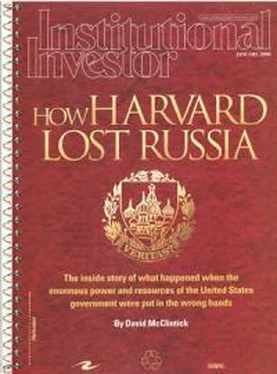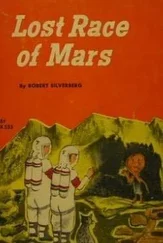At the recent U.S.-Russian Investment Symposium at Harvard's John F. Kennedy School of Government, Yuri Luzhkov, the Mayor of Moscow, made what might have seemed to many an impolite reference to his hosts. After castigating Chubaisand his monetarist policies, Luzhkov, according to a report of the event, "singled out Harvard for the harm inflicted on the Russian economy by its advisers, who encouraged Chubais's misguided approach to privatization and monetarism." Luzhkov was referring to H.I.I.D. Chubais, who was delegated vast powers over the economy by Boris Yeltsin, was ousted in Yeltsin's March purge, but in May he was given an immensely lucrative post as head of Unified Energy System, the country's electricity monopoly.
Some of the main actors with Harvard's Russia project have yet to face a reckoning, but this may change if a current investigation by the U.S. government results in prosecutions. The activities of H.I.I.D. in Russia provide some cautionary lessons on abuse of trust by supposedly disinterested foreign advisers, on U.S. arrogance and on the entire policy of support for a single Russian group of so-called reformers. The H.I.I.D. story is a familiar one in the ongoing saga of U.S. foreign policy disasters created by those said to be our "best and brightest." Through the late summer and fall of 1991, as the Soviet state fell apart, Harvard Professor Jeffrey Sachsand other Western economists participated in meetings at a dacha outside Moscow where young, pro-Yeltsin reformers planned Russia's economic and political future. Sachsteamed up with Yegor Gaidar, Yeltsin's first architect of economic reform, to promote a plan of "shock therapy" to swiftly eliminate most of the price controls and subsidies that had underpinned life for Soviet citizens for decades. Shock therapy produced more shock--not least, hyperinflation that hit 2,500 percent--than therapy.
One result was the evaporation of much potential investment capital: the substantial savings of Russians. By November 1992, Gaidarwas under attack for his failed policies and was soon pushed aside ...
I.I.D. had supporters high in the Administration. One was Lawrence Summers, himself a former Harvard economics professor, whom Clinton named Under Secretary of the Treasury for International Affairs in 1993. Summers, now Deputy Treasury Secretary, had longstanding ties to the principals of Harvard's project in Russia and its later project in Ukraine. Summershired a Harvard Ph.D., David Lipton(who had been vice president of Jeffrey D. Sachsand Associates, a consulting firm), to be Deputy Assistant Treasury Secretary for Eastern Europe and the Former Soviet Union. After Summerswas promoted to Deputy Secretary, Liptonmoved into Summers's old job, assuming "broad responsibility" for all aspects of international economic policy development. Liptonco-wrote numerous papers with Sachsand served with him on consulting missions in Poland and Russia. " Jeffand Davidalways came [to Russia] together," said a Russian representative at the International Monetary Fund. "They were like an inseparable couple." Sachs, who was named director of H.I.I.D. in 1995, lobbied for and received U.S.A.I.D. grants for the institute to work in Ukraine in 1996 and 1997 ...
Andrei Shleifer, a Russian-born emigre and already a tenured professor of economics at Harvard in his early 30s, became director of H.I.I.D.'s Russia project. Shleiferwas also a protege of Summers, with whom he received at least one foundation grant ...
Another Harvard player was a former World Bank consultant named Jonathan Hay, a Rhodes scholar who had attended Moscow's Pushkin Institute for Russian Language. In 1991, while still at Harvard Law School, he had become a senior legal adviser to the G.K.I., the Russian state's new privatization committee; the following year he was made H.I.I.D.'s general director in Moscow. The youthful Hayassumed vast powers over contractors, policies and program specifics; he not only controlled access to the Chubaiscircle but served as its mouthpiece ...
With help from his H.I.I.D. advisers and other Westerners, Chubaisand his cronies set up a network of aid-funded "private" organizations that enabled them to bypass legitimate government agencies and circumvent the new parliament of the Russian Federation, the Duma.
Through this network, two of Chubais's associates, Maxim Boycko (who co-wrote Privatizing Russia with Shleifer) and Dmitry Vasiliev, oversaw almost a third of a billion dollars in aid money and millions more in loans from international financial institutions ...
The device of setting up private organizations backed by the power of the Yeltsin government and maintaining close ties to H.I.I.D. was a way of insuring deniability. Shleifer, Hayand other Harvard principals, all U.S. citizens, were "Russian" when convenient. Hay, for example, served alternately and sometimes simultaneously as aid contractor, manager of other contractors and representative of the Russian government ... Against the backdrop of Russia's Klondike capitalism, which they were helping create and Chubais and his team were supposedly regulating, the H.I.I.D. advisers exploited their intimate ties with Chubais and the government and were allegedly able to conduct business activities for their own enrichment. According to sources close to the U.S. government's investigation, Hay used his influence, as well as U.S.A.I.D.-financed resources, to help his girlfriend, Elizabeth Hebert, set up a mutual fund, Pallada Asset Management, in Russia ... After Pallada was set up, Hebert, Hay, Shleifer and Vasiliev looked for ways to continue their activities as aid funds dwindled. Using I.L.B.E. resources and funding, they established a private consulting firm with taxpayer money. One of the firm's first clients was Shleifer's wife, Nancy Zimmerman, who operated a Boston-based hedge fund that traded heavily in Russian bonds.
According to Russian registration documents, Zimmerman's company set up a Russian firm with Sergei Shishkin, the I.L.B.E. chief, as general director. Corporate documents on file in Moscow showed that the address and phone number of the company and the I.L.B.E. were the same. Then there is the First Russian Specialized Depository, which holds the records and assets of mutual fund investors. This institution, funded by a World Bank loan, also worked to the benefit of Hay, Vasiliev, Hebert and another associate, Julia Zagachin. According to sources close to the U.S. government's investigation, Zagachin, an American married to a Russian, was selected to run the depository even though she lacked the required capital ...
Anne Williamson, a journalist who specializes in Soviet and Russian affairs, details these and other conflicts of interest between H.I.I.D.'s advisers and their supposed clients--the Russian people--in her forthcoming book, How America Built the New Russian Oligarchy . For example, in 1995, in Chubais-organized insider auctions of prime national properties, known as loans-for-shares, the Harvard Management Company (H.M.C.), which invests the university's endowment, and billionaire speculator George Soroswere the only foreign entities allowed to participate. H.M.C. and Sorosbecame significant shareholders in Novolipetsk, Russia's second-largest steel mill, and Sidanko Oil, whose reserves exceed those of Mobil. H.M.C. and Sorosalso invested in Russia's high-yielding, I.M.F.-subsidized domestic bond market.
Читать дальше






![Джонатан Димблби - Barbarossa - How Hitler Lost the War [calibre]](/books/385421/dzhonatan-dimblbi-barbarossa-how-hitler-lost-the-w-thumb.webp)





